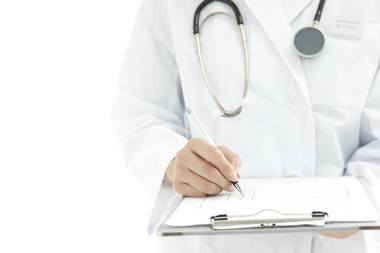1. Be your best advocate
The patient-provider interaction is undergoing an unprecedented change as information becomes increasingly accessible to the general public. You are the most important person in charge of your health; be proactive in taking care of yourself. Read books and search the Internet, however evaluate the source of any information. Realize that misinformation may be deliberate or unintentional. For rare conditions, you may become more educated than non-specialist providers who may have never encountered or experienced your diagnosis.
2. Don’t leave home without it
One of the important pieces of information obtained in any hospital admission is a list of medications the patient is taking. Patients unable to remember their medications may encounter potentially harmful complications. Realize that your memory may not be optimal in a stressful emergency department, especially if you are anxious or in pain. In extreme situations you may not even be conscious. Therefore take the time right now to gather your medications and generate a legible list that you keep in your wallet—pay particular attention to the name, dose, and frequency. It is also equally important to note any drug allergies on the same sheet of paper. If you have reacted to a drug, please note when this happened and the extent of your reaction.
3. Be the best historian
The story of your illness can change—either as you remember lost details or through the “telephone effect” as more people become involved in your care. Expect to tell the details of your circumstance at least 8-10 times if you are admitted to the emergency department. Ideally, if you are able to write down the details of your story it may reduce time and frustration as well as reduce the possibility of incorrect information being propagated in your medical records and your care. Specifically, providers are interested in the onset of your condition (eg, slow, gradual, rapid, fluctuating), the timeline (especially if there have been recent changes), the involved parts of your body, what treatments you have tried or were done by other providers, or any factors that made your condition better or worse. Please tell them early if you have received care in other facilities as it often takes time to access outside records.
4. Remind them who you are
For various reasons it is easy for providers to lose sight of who you were before you got sick. Pictures have an incredibly profound effect on allowing providers to see you as a person and give extra motivation to help you return to that state so you can return to your friends and family.
5. Understand before you leave
Make sure you understand exactly what happened during your hospital course. What were the major treatments performed? What diagnoses were established or refuted? You should be provided with a discharge summary. Go over it and ask for any inconsistencies or errors to be fixed. This is important because these summaries are often used by future providers to piece together your past history with your current condition. Lastly, ask your provider what records of radiological studies, pathology or surgical reports, or other tests should be obtained and brought to future encounters. It may save you from unnecessary medical procedures and prevent any future confusion. Be sure to make copies of everything, providers are notorious for not returning documents and data disks.
6. Find a partner in health
Your providers are limited by time, space, and energy. They may be unable to address all of your health needs during your admission. As a result, patients are often discharged and expected to follow up with their primary care provider. Many readmissions can be prevented if patients are able to follow up with a provider outside the hospital. For those who are financially able, please see your primary care provider 1-2 times a year. Ask them for tailored interventions you can undertake to prevent, stabilize, or reduce disease burden in your life. As always, prevention is better than cure. Lastly, ask your provider what conditions you should include along with the list of medications and allergies you keep in your wallet. As you begin new adventures this year, I hope this year is one of better health. (Photo credit: Doctor via Shutterstock)
